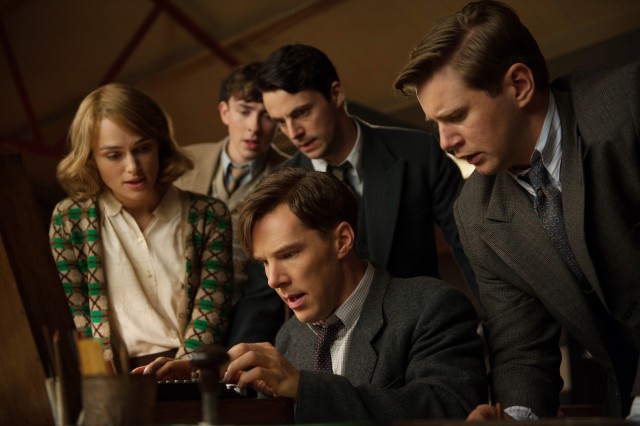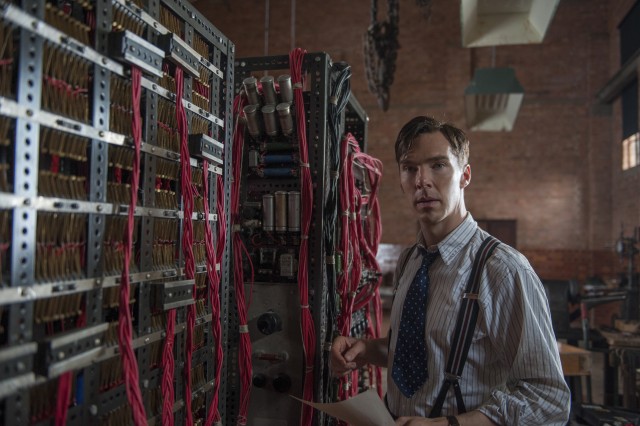
The Imitation Game (such an appropriate title) is based on events in the life of computing pioneer Alan Turing (played by Benedict Cumberbatch).
Often referred to as the father of modern computing/artificial intelligence, the film shifts between:
- The “far past” of Turing’s school days at Sherborne School and the close friendship he formed with Christopher Morcom;
- The “recent past” – the real meat of the story – with Turing and Team Bletchley racing against the clock (and each other) to crack the “un-cracklable” German Enigma code;
- And finally the “present past” – where detective (played by Rory Kinnear) investigates an alleged robbery at Turing’s home, only to discover more than he expected during the course of the investigation.
The world Turing operated in (professional and personal) was heavily reliant on cover-ups and secrecy. And even while most of the action centered on him, many of the supporting characters had their own burdens to bear, some self-imposed, some thrust upon them by others.
Now I love a good spy movie and have been particularly intrigued by this period in British military intelligence I think, ever since I saw another cinematic account of events in the Michael Apted-directed and Tom Stoppard-written early 2000’s feature Enigma starring Dougray Scott and Kate Winslet. As a result, I am naturally biased to like this one. Not that I want to compare, because there really is no comparison.
The Imitation Game, despite all of the meta-stuff going on (meta, like as in the war), still manages to tell a personal and insular story about the triumph and ultimate tragedy of a man who crumbled under the weight of society’s inability to deal with the truth of who he was.
There are many things working to the film’s credit, least of which are the performances. From the top down everyone delivers. Also kudos to Keira Knightley (as Joan Clarke) who continues to impress me with each new performance I see her in.
Although this is a serious, intense thriller, it is not without its share of good humor, mostly delivered through the interaction between Cumberbatch, Charles Dance and Mark Strong. For the audience, I feel like this breaks some of the tension and also nods to the social awkwardness that Turing had with his contemporaries.
While I am sure that many of the events of the film bear a resemblance to what actually took place, the film does almost too neat a job of making much of the “spy game” fall into place; I can get past this because the film covers so much territory in a reasonable amount of time, clocking in at just under the two hours.
The film also manages to cover the headier ideas of the film – including but not limited to Turing’s work that would be the foundations for what is now known as artificial intelligence – in a way accessible to as wide an audience as possible.
Lastly as I mentioned earlier on, the story does play with time a bit. For me this non-linear structure works quite well and kept me engaged with the story, which for the most part I kind of knew while still feeling invested in witnessing the outcome.
In the end, The Imitation Game is a tight, well-performed WWII spy story that is also an interesting study of a man who is ahead of his time and who suffers at the hands of a judgmental society.
The Imitation Game is directed by Morten Tyldum, with an adapted screenplay by Graham Moore (based on Alan Turing: The Enigma by Andrew Hodges); it is now playing in select theaters.

Photos credit: The Weinstein Company

